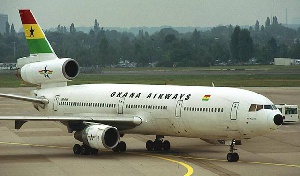The proposed establishment of a new national airline, after the demise of Ghana Airways and its successor, Ghana International Airlines, has been in the works for about two years.
The process has seen the appointment of a transactional advisor in PwC, the publication of expression of interest, and the start of processes to duly license the proposed airline.
Various timelines were given but yet to be met which begs the question, will the proposed airline fly and when?
Government has indicated that it is seeking only a carried interest in the new airline while any selected strategic partner will have to invest in the new enterprise.
The new airline is also expected to be purely commercial than a Public Private Partnership (PPP), evident by restriction of access to the World Bank’s US$30million PPP programme facility.
Twumasi Ankrah Selby, Chief Director of the Transport Ministry, which is responsible for setting up the new flag-carrier noted that: “The World Bank felt that following from the pre-feasibility, it was more of a commercial venture than a PPP arrangement. So their thinking at the time was that at this stage the Ministry can go ahead with its commercial arrangement. This is because they try to support PPP arrangements -- but the way the study came out and the approach, it is more commercial than on a PPP basis.”
The Expression of Interest (EOI) published in local newspapers this year said: “The feasibility studies [for the establishment of a new national carrier] also demonstrated the new national airline will require partnership with an experienced strategic airline partner that has a global distribution network to adequately take advantage of opportunities in the market place”.
The partner, the EOI notes, ought to have good financial strength; technical strength in areas of IT systems and flight operations; maintenance yield and capacity management; good distribution network; and be a member of a global alliance.
The approach in this new enterprise has been questioned by aviation analyst who say the industry is capital intensive and if government really believes in its success, it ought to fund it.
“The EOI published was very scanty and didn’t really give details about what government is looking for”, an aviation source told the B&FT.
Edmund Yomi Jones, aviation specialist and a former MD of Nigeria Airways, told the B&FT that: “The era of state-run airline is not gone. A developing nation is a developing nations. Where is the money? To generate business, governments must put money in the aviation industry. Look at the successful ones, they are owned by their governments. Gov’t should put money as the owner, and let it be run by professionals. Anything else, I am sorry.”
Responding to the approach by Ghana in establishing a new national airlines, he said: “That means they don’t believe in it. If you believe in it, you should put money in there. The key issue is that our governments must be seen to be very straight. Put the money there and don’t touch it. Africa is the future.
Take everything to the stock exchange 100 percent government-owned. After sometime, you can sell 20, later you sell another 20. The moment you do that, the big foreign airline will come and partner with you; they will buy the share.”
For decades, Ghana Airways was the national airline with the Kotoka International Airport (KIA) as its hub. However, the airline -- ridden with debt, ceased operations in 2004. Attempts were made to revive its fortunes but to no avail, and in June 2005 the airline was liquidated.
Government with the support of private investors then established Ghana International Airlines (GIA). The airline faced difficulties and eventually suspended its operations in May 2010. Some loose ends in the liquidation process are still being tightened.
At the ripe age of 59years--at the threshold of retirement-- the country is without a flag carrier. Successful airlines on the continent include Addis-Ababa-based Ethiopian Airlines. Though owned by the State, there is no interference by government and all government appointees pay for their travel on the airline.
Timelines have been given by the government about the establishment and operation of a new national carrier by year-end. But given the dynamics involved, we can only wait and see if the proposed airline will fly.
Business News of Wednesday, 14 December 2016
Source: B&FT

















